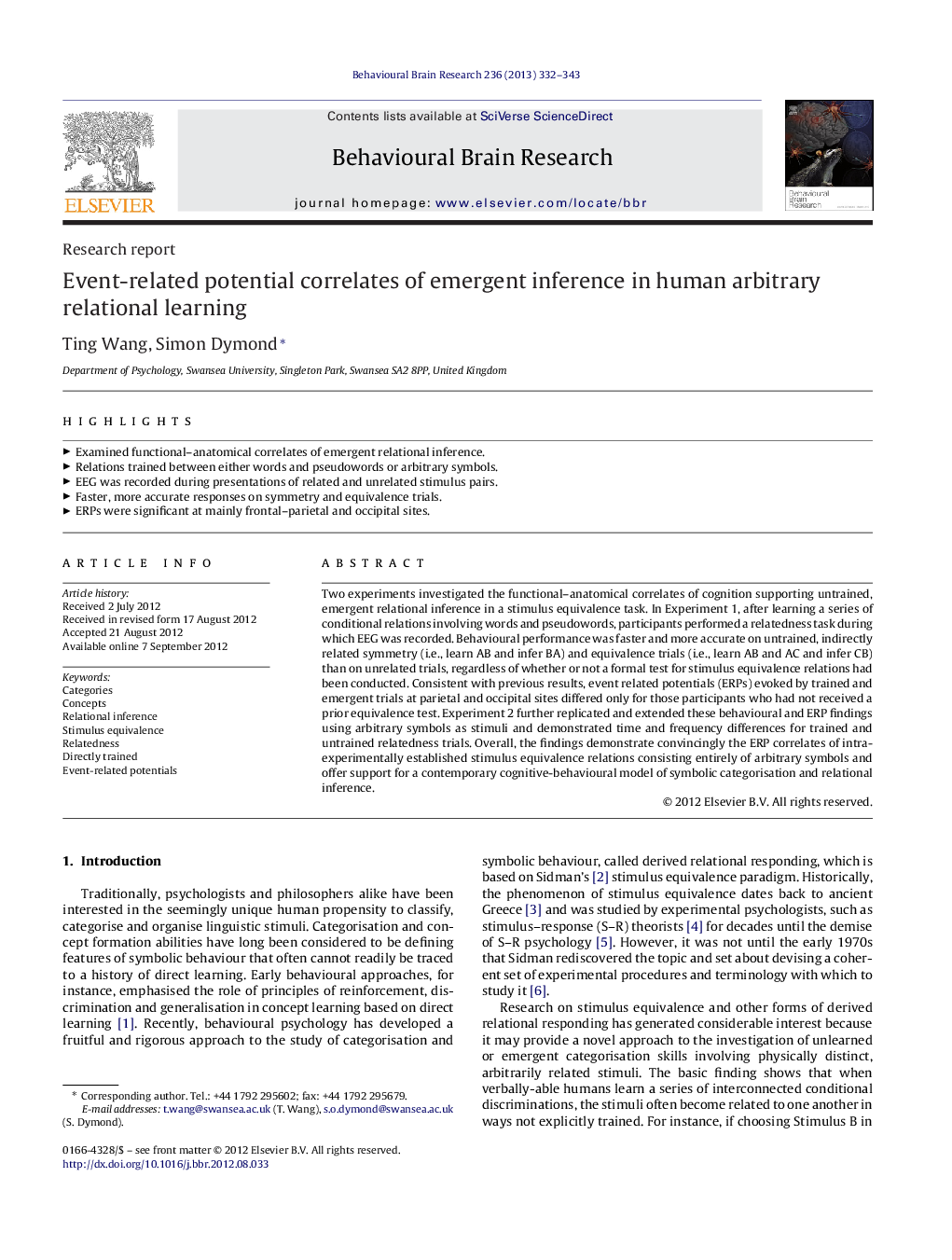| Article ID | Journal | Published Year | Pages | File Type |
|---|---|---|---|---|
| 6259513 | Behavioural Brain Research | 2013 | 12 Pages |
Two experiments investigated the functional-anatomical correlates of cognition supporting untrained, emergent relational inference in a stimulus equivalence task. In Experiment 1, after learning a series of conditional relations involving words and pseudowords, participants performed a relatedness task during which EEG was recorded. Behavioural performance was faster and more accurate on untrained, indirectly related symmetry (i.e., learn AB and infer BA) and equivalence trials (i.e., learn AB and AC and infer CB) than on unrelated trials, regardless of whether or not a formal test for stimulus equivalence relations had been conducted. Consistent with previous results, event related potentials (ERPs) evoked by trained and emergent trials at parietal and occipital sites differed only for those participants who had not received a prior equivalence test. Experiment 2 further replicated and extended these behavioural and ERP findings using arbitrary symbols as stimuli and demonstrated time and frequency differences for trained and untrained relatedness trials. Overall, the findings demonstrate convincingly the ERP correlates of intra-experimentally established stimulus equivalence relations consisting entirely of arbitrary symbols and offer support for a contemporary cognitive-behavioural model of symbolic categorisation and relational inference.
⺠Examined functional-anatomical correlates of emergent relational inference. ⺠Relations trained between either words and pseudowords or arbitrary symbols. ⺠EEG was recorded during presentations of related and unrelated stimulus pairs. ⺠Faster, more accurate responses on symmetry and equivalence trials. ⺠ERPs were significant at mainly frontal-parietal and occipital sites.
